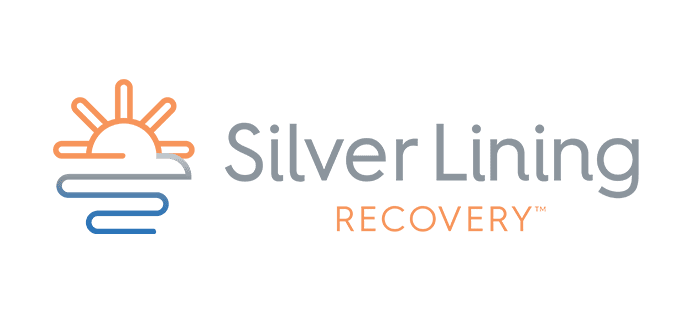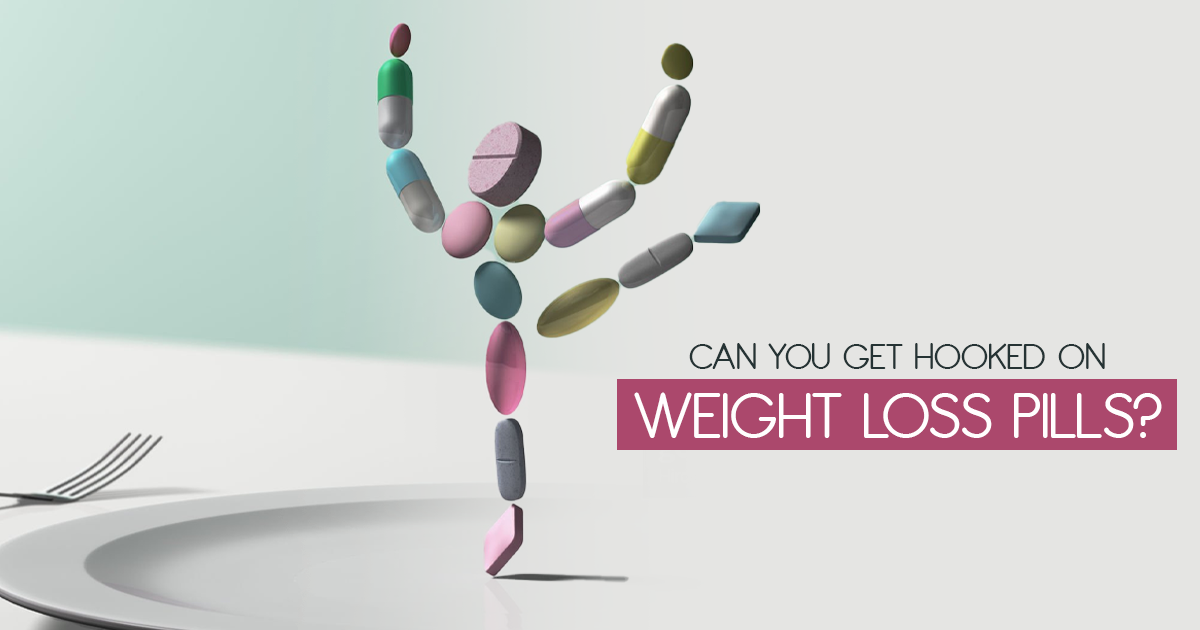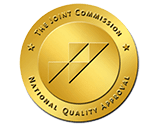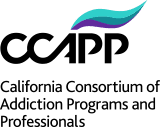Weight loss pills are a broad category of substances. Sometimes, the term refers to over-the-counter medications and supplements you might use to help you lose weight or reduce your appetite. There are also prescription weight loss drugs available.
When possible, it’s best to focus on reducing weight gain and losing weight through a healthy diet, reduced food intake, a low-calorie diet, and exercise. Sometimes people may need more help, though.
Both over-the-counter and prescription medications can have risks and side effects, and in some cases, addiction and dependence are among those.
Below, we detail what to know about weight loss pills and whether or not you can get hooked on them if you use them in your weight loss journey.
Over-the-Counter Weight Loss Pills and Supplements
Most over-the-counter weight loss pills and herbal supplements work on users’ body weights in one or more specific ways.
The effective ingredients can reduce appetite, so you eat less. Some will reduce the absorption of nutrients such as fat, The third way weight loss medicines and supplements can work is by helping your burn more calories reducing fat.
There are a lot of supposedly natural diet pill products that people use.
- Garcinia cambogia is an ingredient commonly found in over-the-counter medicines and supplements.
- Hydroxycut is one of the worlds’ most popular weight loss supplements, and it includes a combination of ingredients, like caffeine and some plant-based extracts.
- You can take caffeine as a supplement. Caffeine supplements are usually high doses of this commonly used psychoactive substance. The ingredient can boost your metabolic rate and energy levels, so it’s often taken to help with losing weight. Caffeine sensitivity can be an issue for some people, especially when using the ingredient at a high supplemental dose. Adverse events and effects associated with caffeine sensitivity can include upset stomach, nausea or vomiting, and chest pain.
- Orlistat is a drug available over-the-counter and is sold under the brand name Alli. There’s also a prescription version called Xenical. Orlistat inhibits the breakdown of fat in your gut, so you take in fewer calories from the fat you consume.
- Green coffee bean extract has two substances that could help lose weight: caffeine and chlorogenic acid.
- Similar to green coffee extract are botanical extracts from green tea. Green tea extract can help speed up your metabolism, and they’re also beneficial for health in other ways outside of being an ingredient in many weight loss medications. Green tea catechins and benefit metabolic function might also reduce your risk of developing cancer.
- Glucomannan is a type of fiber that comes from the roots of the konjac plant. Glucomannan absorbs water, and after it does so, it becomes like a gel that sits in your gut. You feel fuller for longer, so in theory, the ingredient can help you reduce your caloric intake, although you still need to follow a healthy diet.
For the most part, the ingredients above aren’t something you’ll develop an addiction to. Aside from caffeine, most over-the-counter pills don’t have psychoactive properties, meaning they don’t activate your brain’s reward centers or cause euphoria. Those effects are what ultimately drive addiction to a substance.
Just because over-the-counter weight loss pills aren’t addictive doesn’t mean they’re safe.
- Many of these weight-loss dietary supplements can have serious side effects and are often ineffective at helping people lose any weight.
- Side effects of even natural diet pills and dietary supplements can include allergic reactions, stomach pain and upset stomach, renal impairment and effects on kidney function, and other potential side effects.
- Loose stools, irritation to the digestive tract, and lactic acid buildup can occur with some supplements used for weight loss, depending on the active ingredient.
Before anyone takes a weight loss supplement, they should speak to health care professionals. Supplements aren’t regulated by the United States Food and Drug Administration.
What About Prescription Diet Pills?
Prescription diet pills also have a similar goal: to help with weight management in adults, but they also work to do that in different ways.
There are three primary categories of prescription weight loss pills.
- There are stimulants. Stimulants affect the central nervous system, increasing energy, reducing appetite, and also promoting feelings of well-being when someone uses them.
- Appetite-suppressant diet pills target neurotransmitters in the brain to improve feelings of fullness and reduce appetite. Specifically, these pills can target norepinephrine and serotonin.
- Fat inhibitors are the third category of weight loss pills, which activate in the GI tract and reduce fat cells’ absorption to promote modest weight loss. You might take these fat inhibitors every day with meals.
Some other prescription drugs may indirectly help with weight loss outside of the above categories. For example, metformin is a medication that helps control blood sugar levels and allows the body to use its insulin better.
Metformin tablets are prescribed to people with type 2 diabetes usually. Metformin’s side effects are minimal and clinical studies show that people taking it often lose weight, although it’s not technically considered a drug for weight loss. Patients with type 2 diabetes can take metformin for long-term use in many cases because the common side effects and possible adverse effects are often mild.
There are other potentially positive effects of metformin aside from lowering blood glucose levels and weight loss. For example, researchers are looking at metformin as a potential treatment or preventative medication for certain types of cancer. More human studies need to be done to identify the health benefits of metformin.
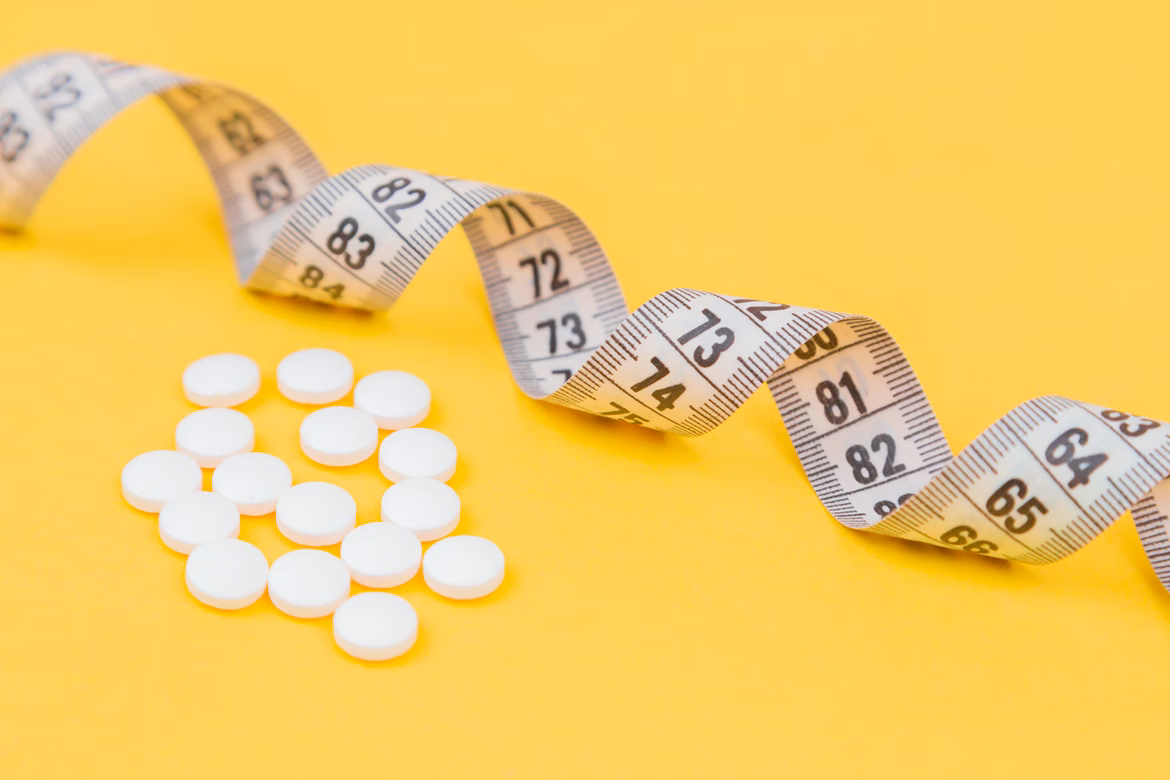
Who’s Eligible for Prescription Weight Loss Drugs?
If someone has a problem with their weight, their health care provider will consider a prescription weight loss drug if they meet certain factors.
If your body mass index (BMI) is above 30, you could be a candidate for certain medications to reduce your weight.
If your BMI is greater than 27 and you have a serious medical condition related to obesity like high blood pressure or diabetes, you may also be a candidate.
Popular Weight Loss Pills Available By Prescription
Some of the particular diet pills available by prescription include:
- Didrex (benzpheatmine)—Stimulant
- Contrave (bupropion and naltrexone)—Appetite suppressant
- Tenuate, Tepanil (diethylpropion)—Stimulant
- Desoxyn (methamphetamine)—stimulant
- Belviq (lorcaserin)—appetite suppressant
- Adipex, Iondamin, Suprenza (phentermine)—stimulant
Most prescription drugs for weight loss do have the potential to be addictive if they contain a stimulant.
Stimulant Use Disorder
Many of the stimulant ingredients in weight loss pills are either amphetamine or act on the brain and body similarly. The effects of prescription stimulants are like cocaine. When you take a stimulant, it speeds up the activities of the central nervous system.
Someone who takes stimulants, even by prescription, might experience elevated blood pressure, breathing, and heart rate. Anxiety and paranoia can also occur.
Stimulants are prescribed to treat symptoms of ADHD and weight loss.
- When someone takes stimulant drugs, they increase the amount of norepinephrine and dopamine in the brain.
- The increased concentration of the chemicals in the brain can cause someone to feel alert or even euphoric.
- Other effects of stimulants include talkativeness, increased concentration, and problems sleeping.
- After someone continues to use stimulants, their brain no longer produces its normal amount of dopamine.
- The brain learns to get dopamine from taking the drug.
- As a result, you’re dependent on the drug, and if you stop taking it, you might experience withdrawal.
Some people may experience addiction and dependence even with short-term use. Other people may never develop either.
Diagnosing a Stimulant Use Disorder
Someone addicted to weight loss pills or other stimulants will have similar symptoms to those with any other addiction.
- Someone with an addiction to weight loss drugs might prioritize getting and using them above other things in their life.
- With a substance use disorder, even when someone wants to cut back or stop using, they’re not able to.
- Addiction affects other responsibilities, a person’s behavior, and mental and physical health.
- For someone with an addiction of any kind, including weight loss pills, behavioral therapy tends to be the most effective treatment option.
- There aren’t any approved medications to treat stimulant dependence, but there may be some medicines that could help with individual symptoms depending on the situation.
Stimulant Addiction Treatment in California
In some cases, weight loss pills can lead to an addiction. If your doctor prescribes a potentially addictive substance to you for weight loss, they should go over all the benefits and the possible risks and harmful effects, including addiction.
Excess weight can put people at risk for heart disease and heart attack, among other complications in obese adults. Properly treating obesity can be an important goal in your overall health, but discuss all your options with your doctor regarding the right approach to weight loss for you.
If you think you could have a substance use disorder, you can contact Silver Lining Recovery confidentially at (833) 844-4769 to learn what the next steps might be for you.
